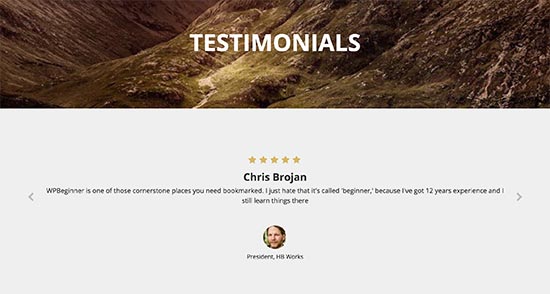How to Use User Generated Content in WordPress to Grow Your Business
Did you know that user-generated content can tremendously help you grow your business? User generated content is both relatable and authentic, that’s why it’s a big winner with millennials and Gen Z. In this article, we will show you how to easily use user-generated content in WordPress to grow your business.

What is User-Generated Content?
User generated content (UGC) is the content generated by user activities on your website. This includes comments, testimonials, guest blog posts, user reviews, or any other user submitted content that is publicly visible and was a direct result of user action.
Why is user generated content important?
User generated content is important because it enables your users to directly take part in activities on your website. This boosts user engagement as users spend more time on your website.
Engaged users are more likely to subscribe to your website and buy what you’re selling.
High-quality and useful user-generated content can help you plan an effective content marketing strategy. You can get more traffic, more affiliate sales, and more social reach to a wider audience.
That being said, let’s take a look at different ways to use user-generated content in WordPress. You can use all of them or just the ones that works best for you.
1. Comments

Comments are the easiest kind of user-generated content that every blog can have. WordPress comes with a built-in commenting system that is enabled on all your blog posts by default.
If you run a business website with no blog, then perhaps you should think of adding a blog. You can keep your existing website design and just add a separate blog page to it.
The tricky part is to get your users to comment. Most users usually leave without writing a comment. However, the good news is that there are a lot of ways to encourage more comments. See our article on how to get more comments on your blog posts.
2. Testimonials

Testimonials not only help generate content, but they also add social proof to your website which helps new users into buying.
For a small business website, testimonials have proven to be a very effective marketing strategy. This is why you see them all around the web.
There are several great testimonials plugins that help you easily add testimonials to your site. You can collect user testimonials using a simple form and display them in a slider, sidebar widget, or on a testimonials page.
Our team behind WPForms has done an excellent job in creating a WPForms review page that shows over 2500+ user testimonials.
For detailed instructions, see our tutorial on how to easily add rotating testimonials to your WordPress site.
3. User Submitted Reviews

If you sell or recommend products/services on your website, then user reviews offer a great opportunity to add more user-generated content to your website.
Reviews not only help you keep users engaged, but they also help other users make buying decisions on your website. That’s why you see many niche reviews sites that heavily rely on user submitted reviews to make money online.
Search engines also love reviews and often highlight them differently in search results. This makes the item more noticeable in search results and brings more traffic to your site.

There are several WordPress product review plugins that you can use. You can also create a separate page for customer reviews or display your Google, Facebook, and Yelp reviews to get the ball rolling.
4. Guest Posts

Guest blogging is a popular content marketing strategy that helps both the blog owner and the guest author. The guest post author gets exposure and backlinks while you get high-quality content.
The easiest way to do that would be to create a new user account for the guest author. However, this would give the guest author access to your WordPress admin area which many site owners don’t feel comfortable with.
In that case, you’ll need the front-end post submission plugin by WPForms. It allows you to easily accept user submitted posts on your website. These posts are then stored as drafts, which you can then review and publish.
You can also use it to create other types of user-generated blog content such as image submissions (memes, photo contests, etc).
For detailed instructions, see our article on how to allow users to submit posts to your WordPress site.
5. Build a Community

Human beings are social, and we like to interact with each other. You can provide your visitors a chance to do that on your own site by building a membership community.
You can make some of your content members-only to encourage new sign-ups. After that you can encourage discussions, reward users for participation, and even create membership levels with paid subscriptions.
The easiest way to do all that is by using MemberPress. It is the best WordPress membership plugin that allows you to build online communities with powerful controls and great flexibility. You can even add it to an existing site without affecting any of your existing content.
For detailed instructions, see our guide on how to make a membership website in WordPress.
We hope this article helped you learn how to use user-generated content in WordPress to grow your business. Now that you have users spending more time on your website, see how to easily track user engagement on your website with Google Analytics.
If you liked this article, then please subscribe to our YouTube Channel for WordPress video tutorials. You can also find us on Twitter and Facebook.
The post How to Use User Generated Content in WordPress to Grow Your Business appeared first on WPBeginner.
source https://www.wpbeginner.com/wp-tutorials/how-to-use-user-generated-content-in-wordpress-to-grow-your-business/